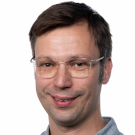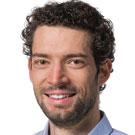Forschungsgruppen
Bernien Lab - Quantenwissenschaft Atom für Atom

Das BernienLab studiert die Quantenphysik, indem sie große Quantensysteme aus einzelnen Atomen in optischen Pinzetten zusammensetzen. Diese Plattform eignet sich ideal sowohl für die Erforschung... Read more …
Ferlaino Lab - Dipolare Quantengase

Die Forschungsgruppe um Francesca Ferlaino beschäftigt sich mit dipolaren Quantenphänomenen, wofür sie stark magnetische Atomspezies verwendet. So konnte die Gruppe im Jahr 2012 das erste... Read more …
Grimm Lab - Ultrakalte Atome und Quantengase

Die Arbeitsgruppe unter der Leitung von Rudolf Grimm untersucht ultrakalte Teilchensysteme, bestehend aus optisch gespeicherten Quantengasen sehr nahe am absoluten Nullpunkt. Solche Systeme... Read more …
Hammerer Group - Quantenoptik und Quantenmetrologie

Die Arbeitsgruppe Hammerer forscht im Bereich der Theoretischen Quantenoptik mit besonderem Fokus auf Quantenmetrologie und Präzisionsmessung. Wir untersuchen physikalische Systeme, die auf der... Read more …
Kirchmair Lab - Supraleitende Quantenschaltkreise

Die Forschungsgruppe um Gerhard Kirchmair arbeitet an supraleitenden Schaltkreisen und deren Anwendung in der Quanteninformationsverarbeitung und Quantensimulation. Die quantenmechanischen... Read more …
Pichler Group - Quantum Science Theory

Die Forschungsgruppe unter der Leitung von Hannes Pichler beschäftigt sich mit quantenoptischen Systemen, Quanten-Vielteilchenphysik und Quanteninformation. Ziel der Gruppe ist es, die theoretischen Grundlagen... Read more …
Emeritus Forschungsgruppen
Blatt Lab - Quantenoptik und Spektroskopie

Die Forschungsgruppe um Rainer Blatt untersucht quantenphysikalische Prozesse an Ionen, die in Ionenfallen gespeichert sind. Ziel der Experimente ist es, eine möglichst vollständige Kontrolle über... Read more …
Zoller Group - Quantenoptik und Quanteninformation

Peter Zoller's Forschungsarbeiten sind auf den Gebieten der theoretischen Quantenoptik und Atomphysik, der Quanteninformation und der Theorie kondensierter Materie angesiedelt. Im Vordergrund steht... Read more …
Aktuellste Preprints
Estimating ground-state properties in quantum simulators with global control
arXiv:2511.04434
Show Abstract
Accurately determining ground-state properties of quantum many-body systems remains one of the major challenges of quantum simulation. In this work, we present a protocol for estimating the ground-state energy using only global time evolution under a target Hamiltonian. This avoids the need for controlled operations that are typically required in conventional quantum phase estimation and extends the algorithm applicability to analog simulators. Our method extracts energy differences from measurements of the Loschmidt echo over an initial ground-state approximation, combines them with direct energy measurements, and solves a set of equations to infer the individual eigenenergies. We benchmark this protocol on free-fermion systems, showing orders-of-magnitude precision gains over direct energy measurements on the initial state, with accuracy improving rapidly with initial-state fidelity and persisting for hundreds of modes. We further demonstrate applicability to the 2D Ising and Fermi-Hubbard models and show that the approach extends naturally to other observables such as order parameters. Finally, we analyze the effect of experimental imperfections and propose error-mitigation strategies. These results establish a practical route to compute physically relevant quantities with high precision using globally controlled quantum simulators.
Efficient Entanglement Purification Circuit Design for Dual-Species Atom Arrays
arXiv:2509.12370
Show Abstract
Entanglement purification protocols (EPPs) are essential for generating high-fidelity entangled states in noisy quantum systems, enabling robust quantum networking and computation. Building on the circuit of the foundational recurrence protocol, we generalize two-way EPPs to arbitrary stabilizer codes. Through analytical derivations and noisy circuit simulations incorporating circuit-level noise, we demonstrate enhanced purification performance, with fidelity improvements and finite distillation rates for distillable input states. We propose efficient circuit designs for EPPs tailored to dual-species Rydberg atom arrays, leveraging species-specific laser control and interspecies Rydberg interactions. Introducing a low-overhead operation set, the dual-species atom convenient operation set, we facilitate straightforward compilation of EPP circuits without the need for ancillary atoms or complex atom rearrangements. Our framework provides practical guidance for near-term implementations on dual-species platforms, advancing towards scalable entanglement distribution in neutral atom systems and paving the way for fault-tolerant quantum technologies.
Non-local mass superpositions and optical clock interferometry in atomic ensemble quantum networks
arXiv:2509.19501
Show Abstract
Quantum networks are emerging as powerful platforms for sensing, communication, and fundamental tests of physics. We propose a programmable quantum sensing network based on entangled atomic ensembles, where optical clock qubits emulate mass superpositions in atom and atom-clock interferometry. Our approach uniquely combines scalability to large atom numbers with minimal control requirements, relying only on collective addressing of internal atomic states. This enables the creation of both non-local and local superpositions with spatial separations beyond those achievable in conventional interferometry. Starting from Bell-type seed states distributed via photonic channels, collective operations within atomic ensembles coherently build many-body mass superpositions sensitive to gravitational redshift. The resulting architecture realizes a non-local Ramsey interferometer, with gravitationally induced phase shifts observable in network-based interference patterns. Beyond extending the spatial reach of mass superpositions, our scheme establishes a scalable, programmable platform to probe the interface of quantum mechanics and gravity, and offers a new experimental pathway to test atom and atom-clock interferometer proposals in a network-based quantum laboratory.
Bounded-Error Quantum Simulation via Hamiltonian and Lindbladian Learning
arXiv:2511.23392
Show Abstract
Mehr Preprints
Analog Quantum Simulators offer a route to exploring strongly correlated many-body dynamics beyond classical computation, but their predictive power remains limited by the absence of quantitative error estimation. Establishing rigorous uncertainty bounds is essential for elevating such devices from qualitative demonstrations to quantitative scientific tools. Here we introduce a general framework for bounded-error quantum simulation, which provides predictions for many-body observables with experimentally quantifiable uncertainties. The approach combines Hamiltonian and Lindbladian Learning--a statistically rigorous inference of the coherent and dissipative generators governing the dynamics--with the propagation of their uncertainties into the simulated observables, yielding confidence bounds directly derived from experimental data. We demonstrate this framework on trapped-ion quantum simulators implementing long-range Ising interactions with up to 51 ions, and validate it where classical comparison is possible. We analyze error bounds on two levels. First, we learn an open-system model from experimental data collected in an initial time window of quench dynamics, simulate the corresponding master equation, and quantitatively verify consistency between theoretical predictions and measured dynamics at long times. Second, we establish error bounds directly from experimental measurements alone, without relying on classical simulation--crucial for entering regimes of quantum advantage. The learned models reproduce the experimental evolution within the predicted bounds, demonstrating quantitative reliability and internal consistency. Bounded-error quantum simulation provides a scalable foundation for trusted analog quantum computation, bridging the gap between experimental platforms and predictive many-body physics. The techniques presented here directly extend to digital quantum simulation.
Alle Publikationen



